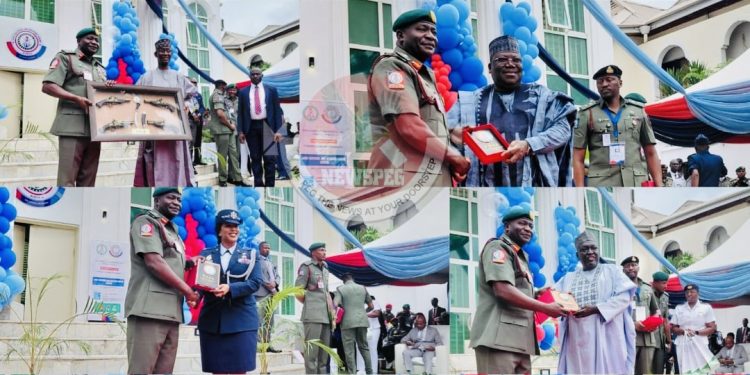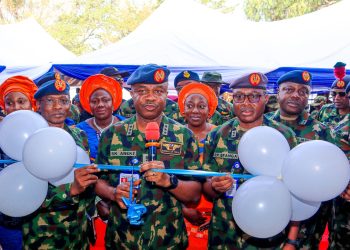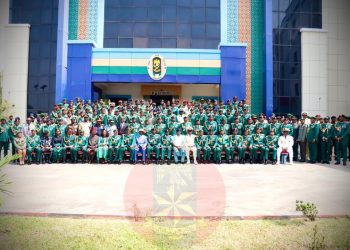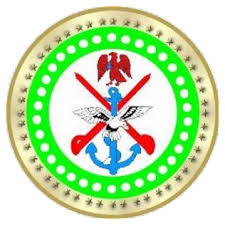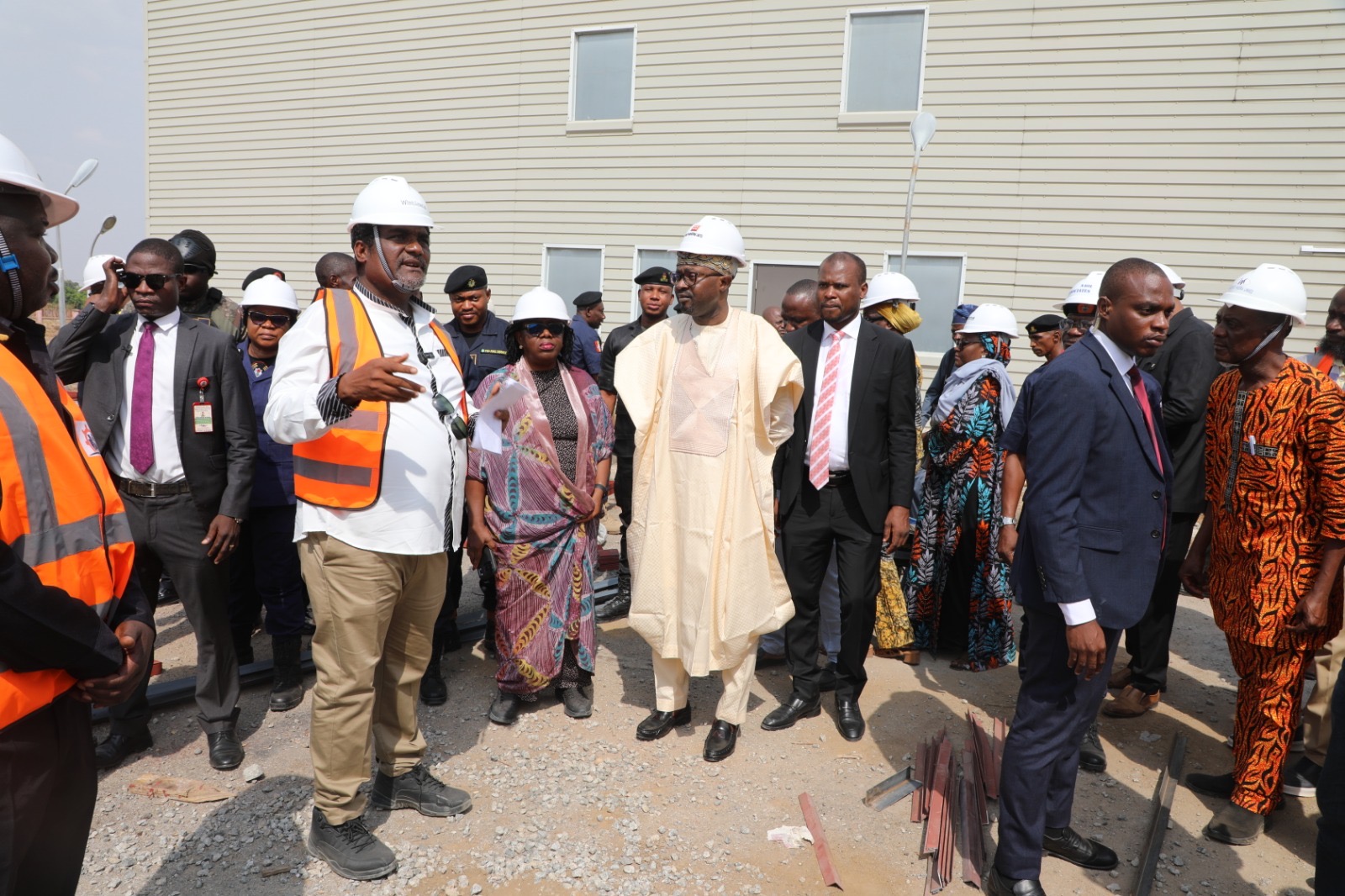…centre to drive unified military doctrine, joint planning, and multi-agency collaboration for national and regional security
By Nkechi Eze
In a historic move to strengthen Nigeria’s defence architecture and institutionalize joint operational planning, the Chief of Defence Staff (CDS), General Christopher Musa, CFR, has commissioned the Joint Doctrine and Warfare Centre (JDWC) in Abuja. The landmark development is expected to significantly enhance synergy across the Armed Forces and foster whole-of-government collaboration in tackling contemporary and asymmetrical security challenges.
Described as a transformative step for Nigeria’s national security framework, the new Centre offers a centralized platform for the harmonization of military doctrines and joint planning processes among the Nigerian Army, Navy, and Air Force, as well as critical stakeholders in the wider security ecosystem. General Musa emphasized that the era of fragmented operations across the services is now over, declaring: “It used to be the Army, Air Force, and Navy working independently. Now, this Centre brings us together… so that everyone knows their role and we work as one.”
Addressing a high-level audience of senior military officers, government officials, diplomats, and partners, the CDS outlined the strategic intent behind the JDWC, stressing that modern-day threats demand an integrated response beyond the conventional capabilities of individual services. “Everything about doctrine is how we fight and how we operate together as a team,” he said. “Fighting asymmetry is not like conventional warfare. Now we need everyone military, judiciary, police, health, and more to plan and operate together.”
He explained that the Centre would serve as a doctrinal engine room for Nigeria’s defence establishment, where strategies are developed, synchronized, and deployed in real-time across theatres of operation. Furthermore, it will support inter-agency coordination, joint exercises, operational reviews, and knowledge sharing, all of which are essential in today’s complex security environment.
The Special Guest of Honour, National Security Adviser Malam Nuhu Ribadu, MNI, lauded the establishment of the Centre as a groundbreaking development, describing it as a “new milestone for the Nigerian military” and a reflection of the innovation within the current security leadership. “We’ve never had a Centre like this before,” he noted. “It will enable our Armed Forces to strategize and operate as one. Nigerians will witness the improvements through better security and efficiency.”
He emphasized that the JDWC signals a deliberate shift towards global best practices in joint operations and integrated security governance. “This is a demonstration of creativity and innovation,” Ribadu stated. “The Armed Forces have come together with other security and intelligence agencies. This collective effort is already making a difference, and Nigerians in every corner of the country can feel the change.”
In addition to its national focus, the JDWC is positioned to serve as a regional hub for doctrine harmonization and multinational cooperation. The Centre will engage with regional bodies such as ECOWAS, the Lake Chad Basin Commission, and the African Union to support joint training, planning, and peacekeeping efforts. According to General Musa, personnel from allied African nations will be integrated into its programs, strengthening regional security interoperability and confidence-building.
Acknowledging the international partnerships that contributed to the establishment of the JDWC, the CDS extended gratitude to the Nigeria–UK Defence and Security Partnership and the United Nations for their strategic and technical support. Their involvement, he said, reflects the growing confidence in Nigeria’s leadership in regional peace and security initiatives.
The commissioning ceremony was attended by key stakeholders in Nigeria’s security and defence community, including the Chairman, Senate Committee on Defence, Senator Ahmed Lawan, GCON; Chairman, House Committee on Army; the Honourable Minister of Defence, represented by the Permanent Secretary; the Honourable Minister of Foreign Affairs, represented by the Permanent Secretary; the Service Chiefs; the Director General of the Department of State Services (DSS); the Representative of the Inspector-General of Police; the Director General of the National Intelligence Agency (NIA); members of the diplomatic corps; defence advisers; and representatives of regional and international organisations.
As the Armed Forces of Nigeria evolve to confront increasingly complex threats, the establishment of the Joint Doctrine and Warfare Centre represents a critical leap toward integrated defence planning, smarter response coordination, and institutional resilience. With the Centre now operational, Nigeria’s military doctrine is poised to reflect a more unified, agile, and forward-looking approach to national and regional security.


